For the Solopreneur or Lean Startup, every resource—time, money, and mental energy—is finite. The cardinal sin of early-stage development is over-architecting. This means spending weeks setting up a PostgreSQL database, writing custom authentication flows, and building a React frontend just to present a searchable list of data to a customer or team member. This process violates the fundamental Lean principle of minimizing waste (Muda) and maximizing the speed of the Build-Measure-Learn loop.
The reality for 90% of early-stage products is that the core value proposition is simply data access and organization. You don't need a complex custom backend; you need a secure, polished, and interactive layer over your existing information.
This is the strategic sweet spot for Data-Centric Builders like Glide and Softr. These tools allow founders to bypass months of development by instantly creating a secure, user-facing application built directly upon their core asset—their data, often housed in flexible spreadsheets or databases like Google Sheets or Airtable. They are the anti-waste solution, prioritizing Time-to-Market (TTM) and simplicity over unnecessary customization, making them the ultimate tools for validating data-driven MVPs, internal portals, and monetization models like membership sites.
Glide – The Ultra-Lean Validation Engine
Strategic Positioning: Maximum Velocity and Simplicity
Glide is the ultimate expression of the "spreadsheet-to-app" philosophy. It’s designed for maximal velocity, instantly transforming familiar, non-technical data sources (Google Sheets, Excel, Airtable) into functional, beautiful, and mobile-optimized applications. The primary power of Glide is its direct, intuitive connection to data, which allows founders to operate in the native language of the business owner: the spreadsheet.
Best Fit Use Cases: The First 100 Customers and Operational Readiness
Glide’s simplicity and speed make it ideal for solving the internal and initial external problems that kill founder velocity:
- Internal Dashboards & Operational Muri Reduction: Before hiring an Operations Manager, the founder is the bottleneck. Glide instantly creates Internal Dashboards—employee directories, task trackers, simple expense approval tools. If you are managing critical data in a sheet, Glide can immediately improve access and workflow, reducing the Overburden (Muri) on the founder by creating audited input/output interfaces.
- Rapid Data Collection Prototypes: You need to collect structured feedback or data from your first few clients. Instead of setting up a custom database form, Glide creates a user-friendly app that writes updates instantly back to your Google Sheet. This makes the Measure phase of the Lean loop dramatically faster and cleaner.
- Low-Friction Client Collaboration: Need a secure portal where a handful of early beta clients can view their project status or access shared documents? Glide is the fastest way to offer this high-touch service without writing a single line of code, providing a premium feel for early adopters.
The Strategic Runway: Big Tables and Scaled Capacity
Historically, a limitation of spreadsheet-based apps was the low ceiling on data rows. Glide recently addressed this with Big Tables, now supporting up to 10 million rows. This is a massive strategic upgrade for the solopreneur. It means that while you start simple, you won't immediately hit a performance or capacity ceiling if your idea (e.g., a huge public directory) takes off rapidly. This added capacity provides critical runway—buying the founder 6-12 extra months to secure funding or achieve stable revenue before a major, expensive migration to a custom database is required.
TCO Strategy: Turning Cost into Income
Glide offers a competitive 20% recurring commission affiliate program. For the entrepreneurial founder, this is a vital TCO mitigation tool. If you consult, build small internal tools for other businesses, or simply recommend Glide to your network, the affiliate commissions can often cover or heavily subsidize your own subscription costs. This is financial leverage that allows the founder to divert capital from platform costs directly into high-leverage activities like marketing or customer acquisition.
Softr – The Polished Commercialization Specialist
Strategic Positioning: Monetization and Gated Professionalism
Softr is the definitive front-end partner for commercializing data. While Glide focuses on speed and utility, Softr is built for polished professionalism and advanced access control. Its core focus is on transforming raw data into beautiful, professional web applications with features crucial for revenue generation, such as user permissions, member access control, and robust SEO optimization.
Best Fit Use Cases: The PMF Validation Play
Softr is the superior choice when the application itself is the product you are selling, directly helping validate your monetization hypothesis:
- Gated Membership Sites: Creating paid, secure resource libraries or member directories where access is tightly managed via user login and subscription tiers. This directly validates whether customers will pay for curated data.
- Highly Polished Client Portals: Providing VIP clients with a sleek, branded experience to track support tickets, view billing history, or access premium resources. The aesthetic quality of Softr justifies charging a higher service fee.
- Advanced Directories and Marketplaces: Building a beautifully designed, searchable directory (e.g., a "Tools for Founders" database) with advanced filtering, custom page layouts, and the ability to handle user-submitted content.
The Lean Architectural Advantage: Airtable + Softr
Softr’s strength comes from its robust integration with platforms like Airtable. This stack represents a powerful application of the Lean Separation of Concerns principle:
- Airtable (Data Backbone): Handles the database, data relationships, and complex calculations.
- Softr (Frontend Interface): Handles the design, user authentication, and access control.
The benefit? Simplified Debugging and Resilience. Instead of debugging a single, complex full-stack monolithic app, you are debugging two highly specialized systems. If a user sees the wrong data, you check Airtable. If the user can't log in, you check Softr. This isolation of potential failure points dramatically speeds up the Measure and Learn phases of the loop.
Financial Leverage: The Agency/Affiliate Multiplier
Softr offers one of the most generous affiliate/agency models, with potential commissions up to 30% recurring. This model directly incentivizes the founder to succeed. If you are a consultant, a knowledge expert, or run a micro-agency, referring even a few successful clients can fully offset your own platform costs and create a new revenue stream, further minimizing your startup's financial burn rate.
Airtable – The Lean Data Backbone
For the data-centric MVP, the choice of a backend is as critical as the frontend builder. Airtable often functions as the "secret weapon," strategically replacing traditional, complex databases in the early stages.
Why Airtable is the Anti-Waste Database
- Visual Debugging and Democratization (Low Muri): Unlike traditional SQL or NoSQL databases, Airtable presents data visually. The founder can manage relationships, track records, and spot errors without writing a single line of SQL or hiring a specialized Database Administrator (DBA). This removes the Overburden (Muri) of complex database management from the founder’s plate.
- Built-in Automation (Low Muda): Airtable has robust built-in automations—scheduling emails, moving records, or sending Slack notifications based on data changes. These features cover 80% of the initial operational workflow needs of an early-stage company, eliminating the need to pay for or integrate a separate workflow tool like Zapier or Build.io. This is direct reduction of Waste (Muda).
- Rapid Collaboration: The visual nature of Airtable makes it instantly usable by non-technical co-founders, interns, or virtual assistants, allowing the founder to delegate data entry and management tasks without friction.
By starting with Airtable, the founder achieves two critical Lean objectives: Zero DBA Cost and Maximal Data Transparency.
The Strategic Crossroads – TTM vs. Commercial Readiness
The decision between Glide and Softr is not about which is "better," but which aligns with your immediate, current phase of validated learning.
| Metric | Lean Goal | Glide Focus | Softr Focus |
|---|---|---|---|
| Speed (TTM) | Validation Velocity | Absolute fastest (Minutes) | Very fast (Hours) |
| Monetization | Access Control | Limited (Basic public/private pages) | High (Member tiers, Gated content, SEO) |
| Aesthetic/Brand | Perceived Value | Functional and clean | Premium, Website-like Polish |
| Data Source | Flexibility | Google Sheets, Airtable, etc. | Airtable is the optimized core |
The Operational Readiness Checklist
A founder should ask these questions to guide their choice:
- If you primarily need to collect and manage data (internal trackers, basic forms), choose Glide for its unparalleled simplicity.
- If you primarily need to sell access to data (membership, premium directory), choose Softr for its superior authentication and presentation layer.
- If you need to grant granular permissions (e.g., "This employee can only see records assigned to them"), Softr is mandatory. Its security and user management capabilities are far superior, allowing you to safely delegate tasks and scale your internal operations without risking data exposure.
- While both are low-code, an app built on Softr often presents a more professional, "website-like" interface, which can be advantageous for pitch decks and initial investor meetings where aesthetic quality matters.
Airtable – The Lean Data Backbone
Why Airtable is the Anti-Waste Database
- Visual Debugging and Democratization (Low Muri): Unlike traditional SQL or NoSQL databases, Airtable presents data visually. The founder can manage relationships, track records, and spot errors without writing a single line of SQL or hiring a specialized Database Administrator (DBA). This removes the Overburden (Muri) of complex database management from the founder’s plate.
- Built-in Automation (Low Muda): Airtable has robust built-in automations—scheduling emails, moving records, or sending Slack notifications based on data changes. These features cover 80% of the initial operational workflow needs of an early-stage company, eliminating the need to pay for or integrate a separate workflow tool like Zapier or Build.io. This is direct reduction of Waste (Muda).
- Rapid Collaboration: The visual nature of Airtable makes it instantly usable by non-technical co-founders, interns, or virtual assistants, allowing the founder to delegate data entry and management tasks without friction.
By starting with Airtable, the founder achieves two critical Lean objectives: Zero DBA Cost and Maximal Data Transparency.
The Graduation Plan – Knowing When to Quit (The Success Signal)
The Glide/Softr + Airtable stack is a powerful launchpad, but it has a performance and complexity ceiling. A truly Lean Founder must treat this stack as a temporary, high-leverage asset and know the exact signals that mandate a "successful graduation" to a more robust platform.
You should consider moving to a tool like Bubble (for web) or FlutterFlow (for native) or even a custom, code-based stack when you hit one of these three critical limits:
- The Signal: You need multi-stage, server-side workflows that involve complex logic across three or more external APIs (e.g., a multi-party escrow system, a custom loan calculation that requires a third-party risk assessment, or conditional logic that runs based on a complex custom algorithm).
- The Problem: Airtable’s native automation and Softr/Glide’s simple actions are insufficient. You find yourself spending too much time building complex integrations via Zapier, which adds cost, complexity, and latency.
- The Graduation: You need a full-stack environment like Bubble (which specializes in complex workflow logic) or a custom code solution that can securely host server-side functions.
- The Signal: Your app processes over 10 million records, experiences simultaneous user traffic spikes, or requires millisecond-level responsiveness for complex queries (e.g., a real-time trading dashboard).
- The Problem: While Big Tables improved capacity, the latency inherent in querying a service like Airtable (which is not a dedicated, relational database optimized for speed) begins to degrade the user experience (UX). Every second lost is a potential customer lost.
- The Graduation: You must migrate your core data to a dedicated, scalable database like PostgreSQL or MongoDB and use a frontend builder (FlutterFlow or a custom React/Next.js stack) designed to handle highly optimized queries.
- The Signal: You have secured funding and are ready to hire your first Senior Engineer or CTO. The job requires building unique, custom features that are impossible to execute with the pre-built components offered by Softr or Glide.
- The Problem: A Senior Engineer will resist maintaining a proprietary low-code platform and will demand a stack they can hire for (React, Python, etc.). Continuing to use the portal builders becomes a hiring roadblock.
- The Graduation: This is the best problem to have. You successfully validated PMF, secured funding, and proved the concept using minimal resources. Now, you use the raised capital to migrate the validated product to a scalable, industry-standard stack (like Replit with custom code) that your new engineering team can instantly own and accelerate.
Until you hit these critical, high-revenue-generating limits, the Softr/Glide + Airtable stack remains the most cost-effective, high-speed solution. It maximizes leverage, minimizes development time, and allows the Lean Founder to focus on the only thing that matters: validated learning and customer acquisition.

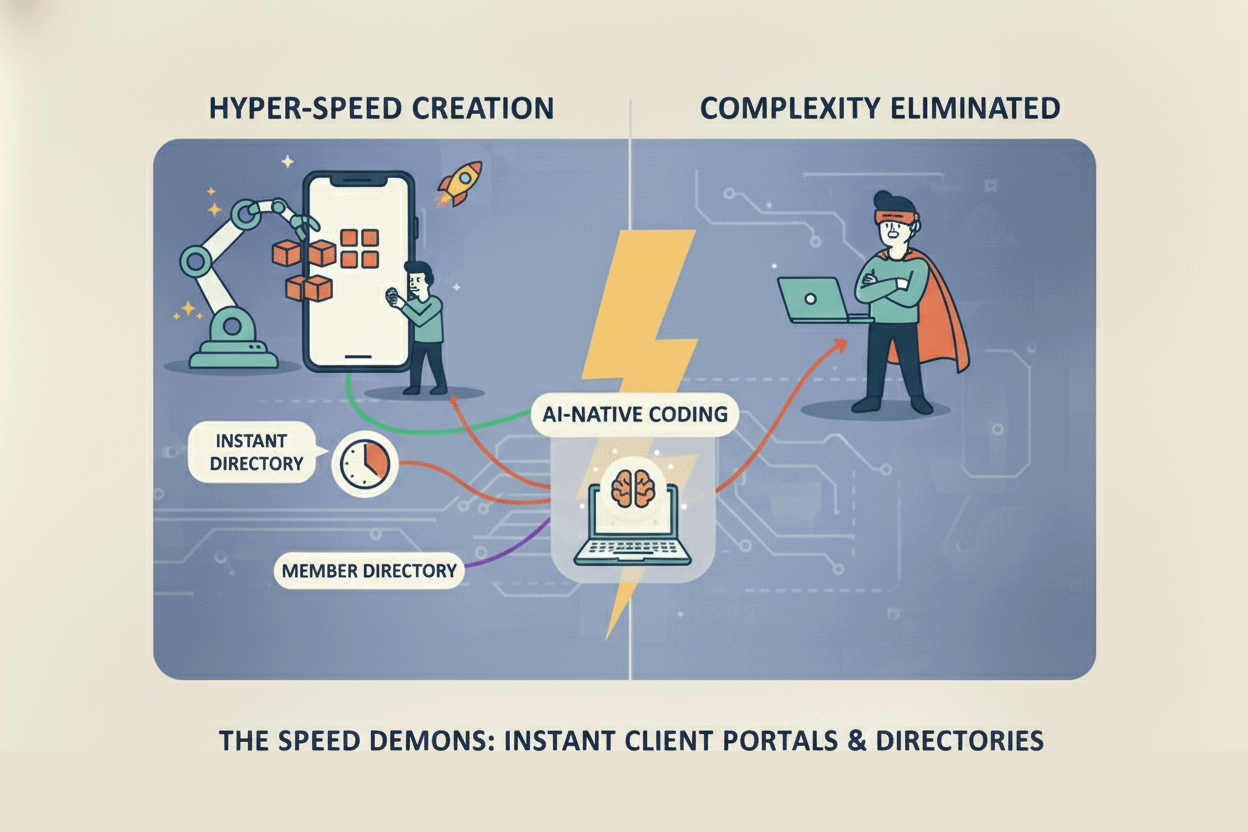
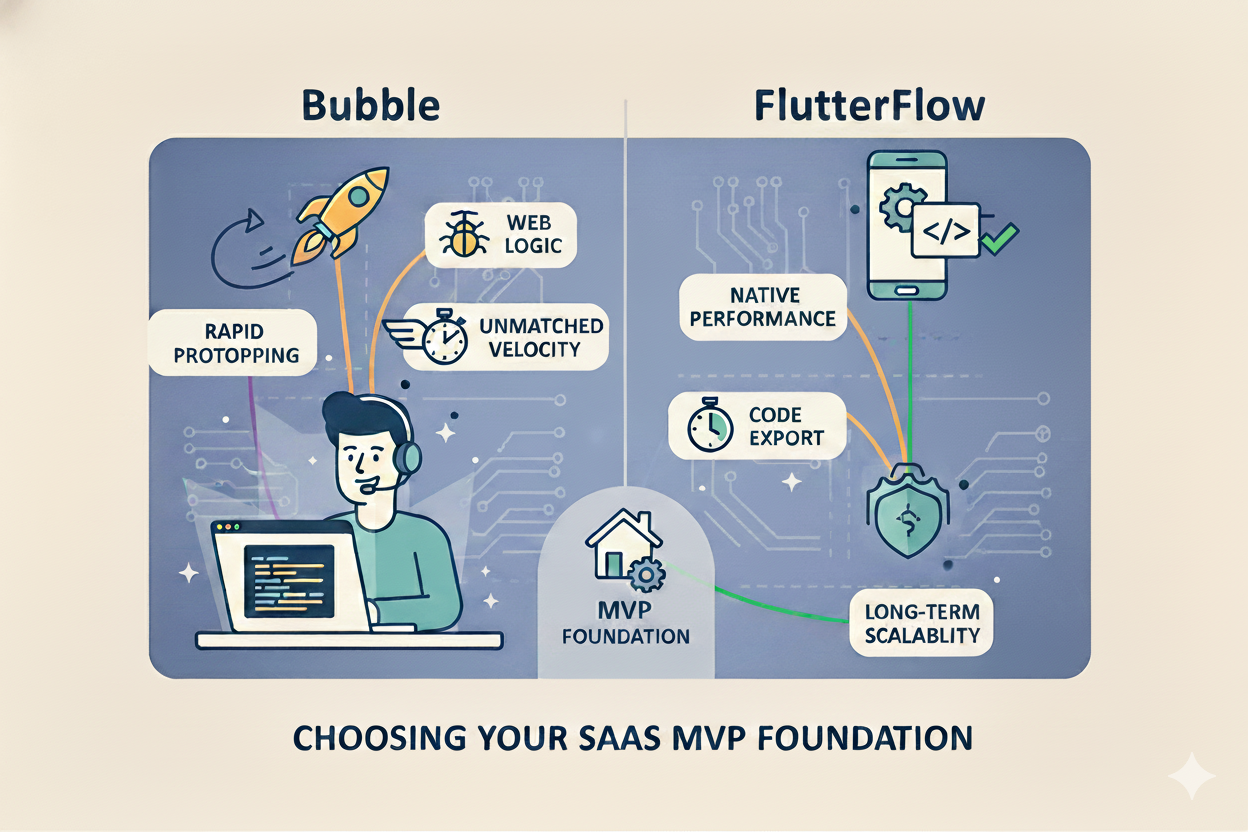
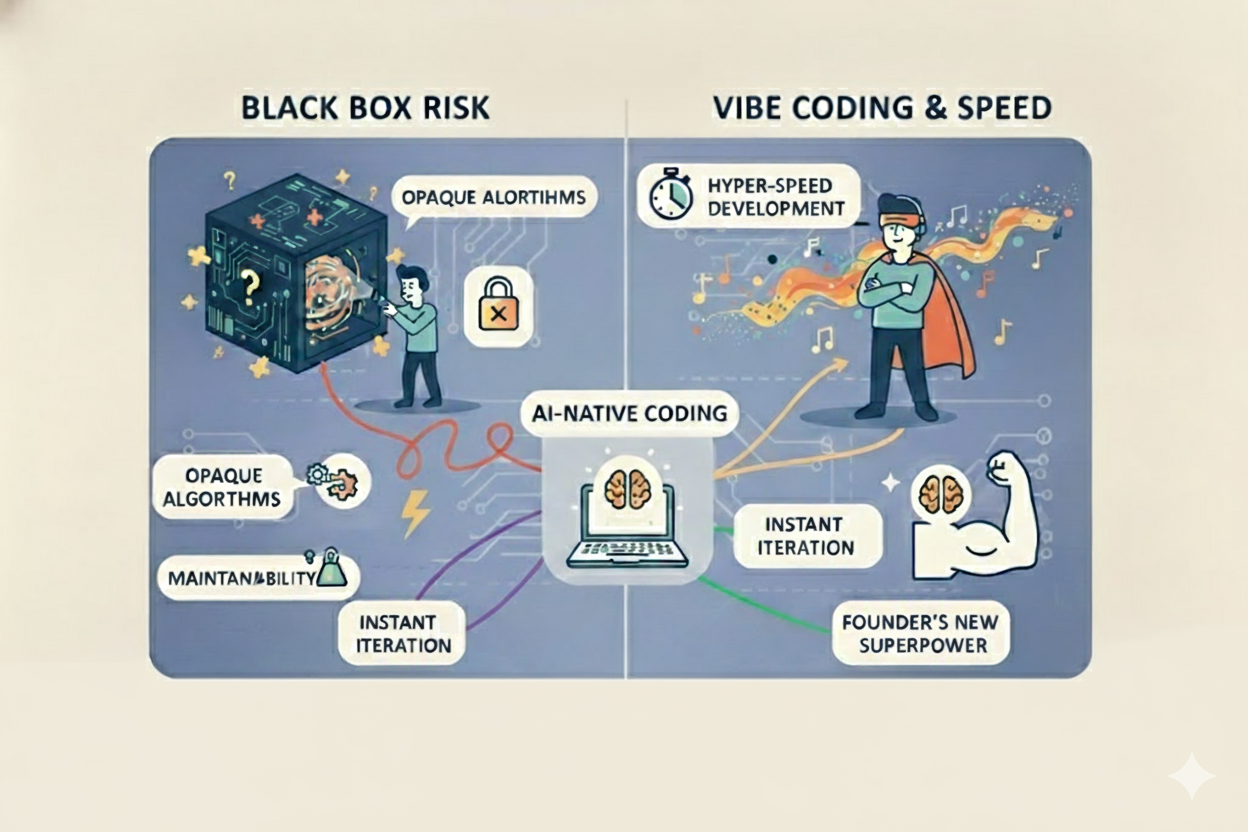
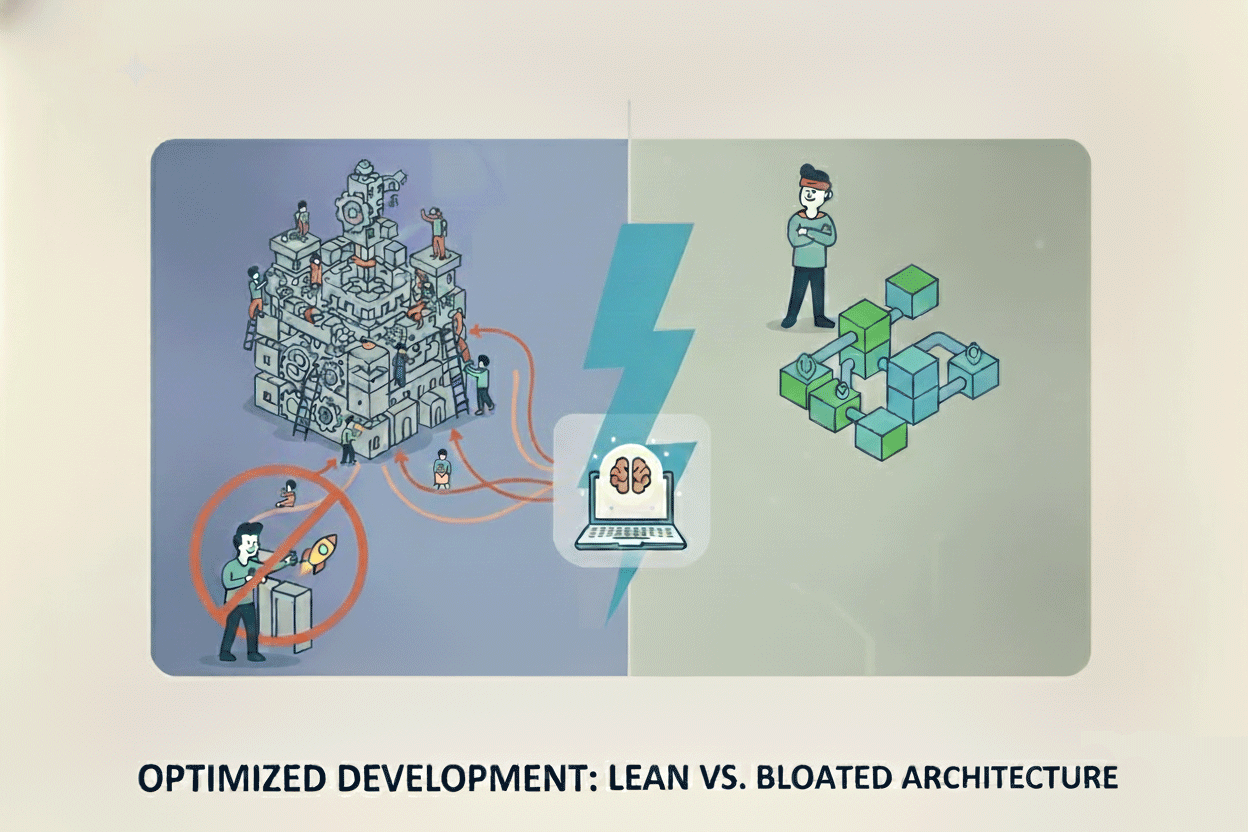
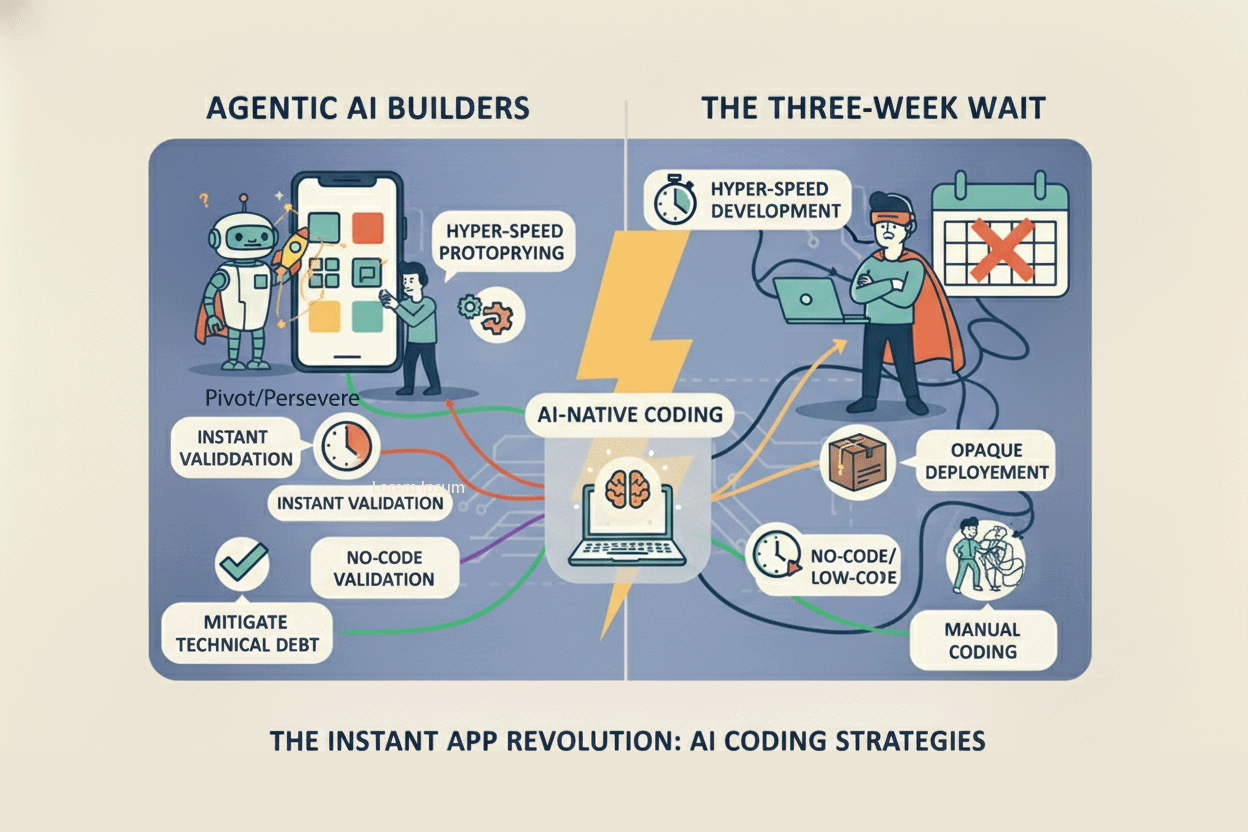
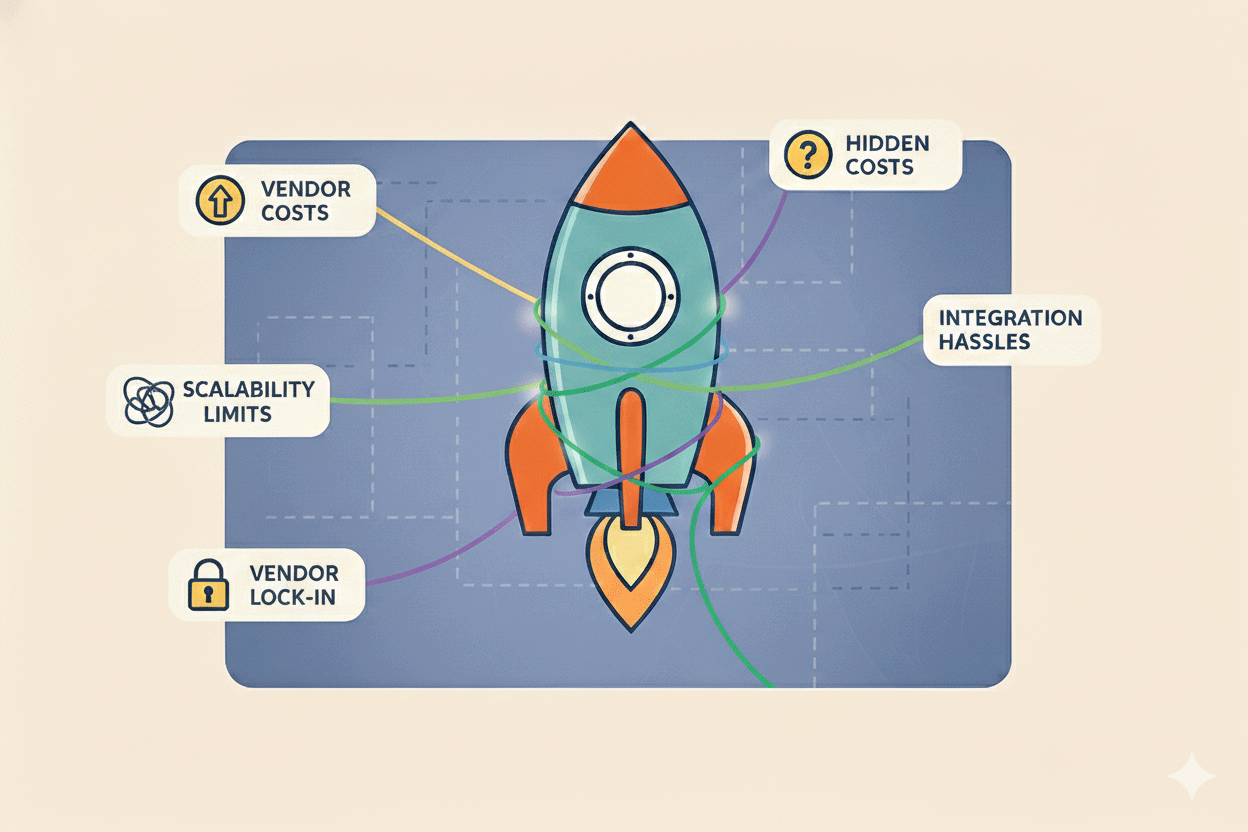
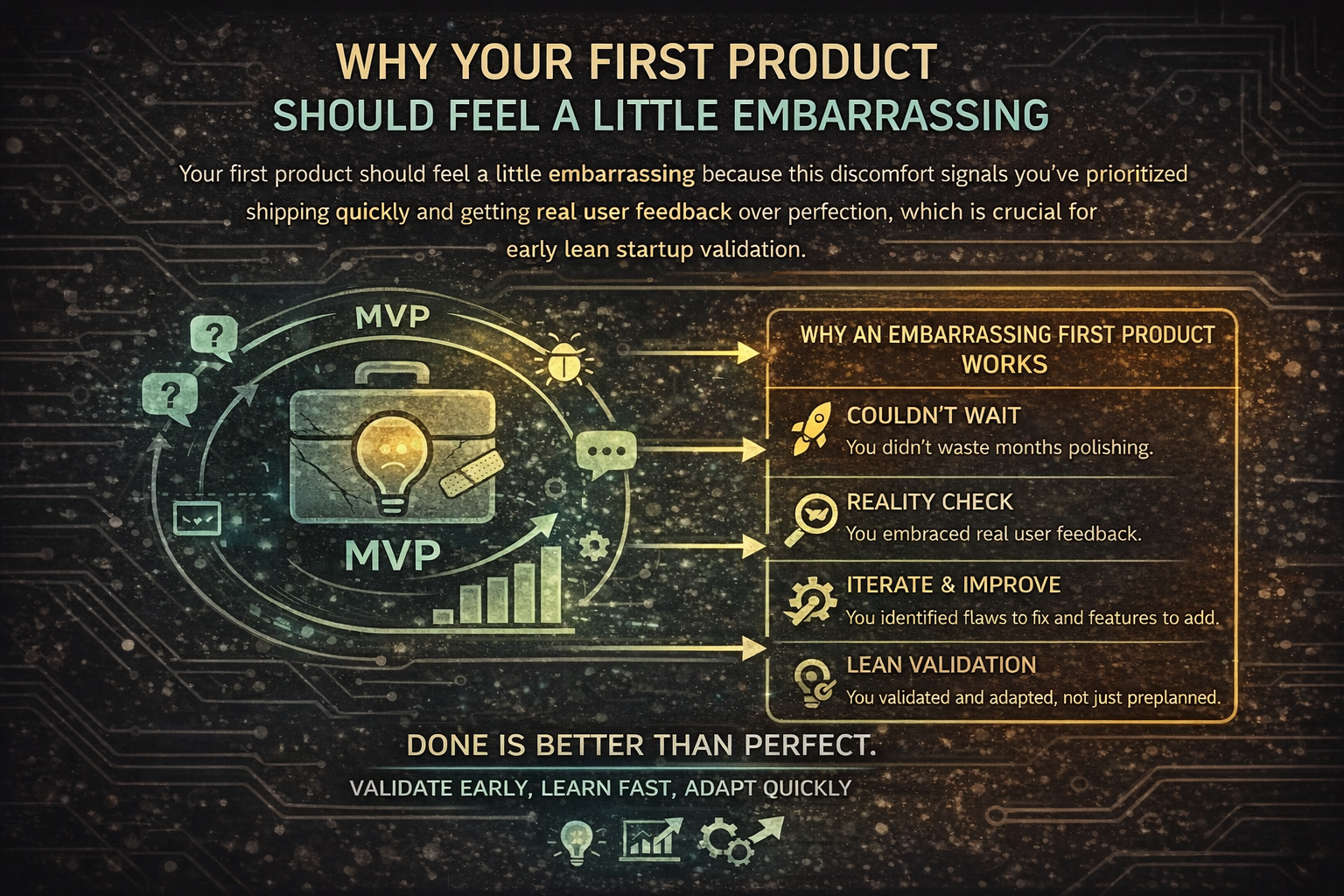
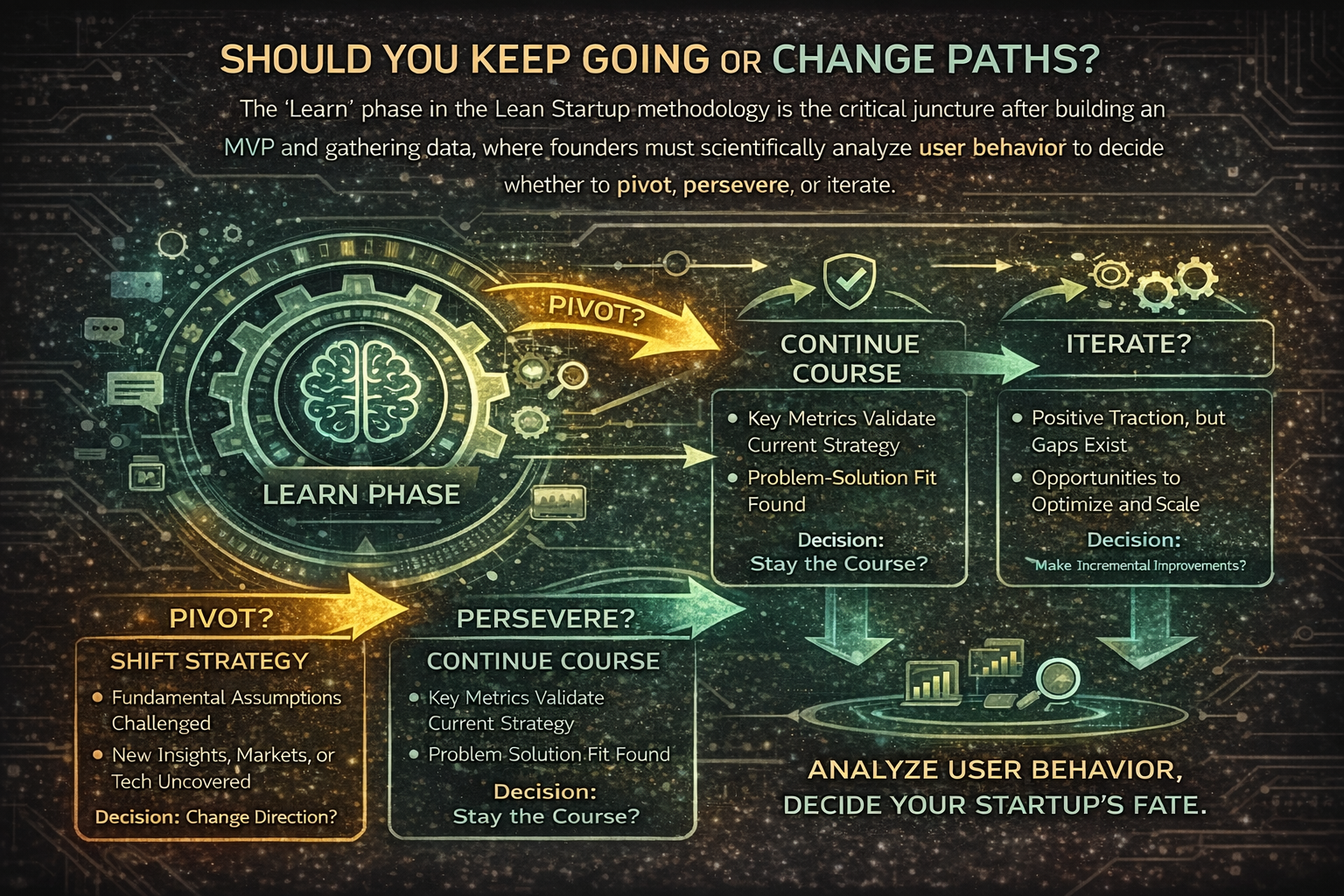
No comments yet
Be the first to share your thoughts on this article!